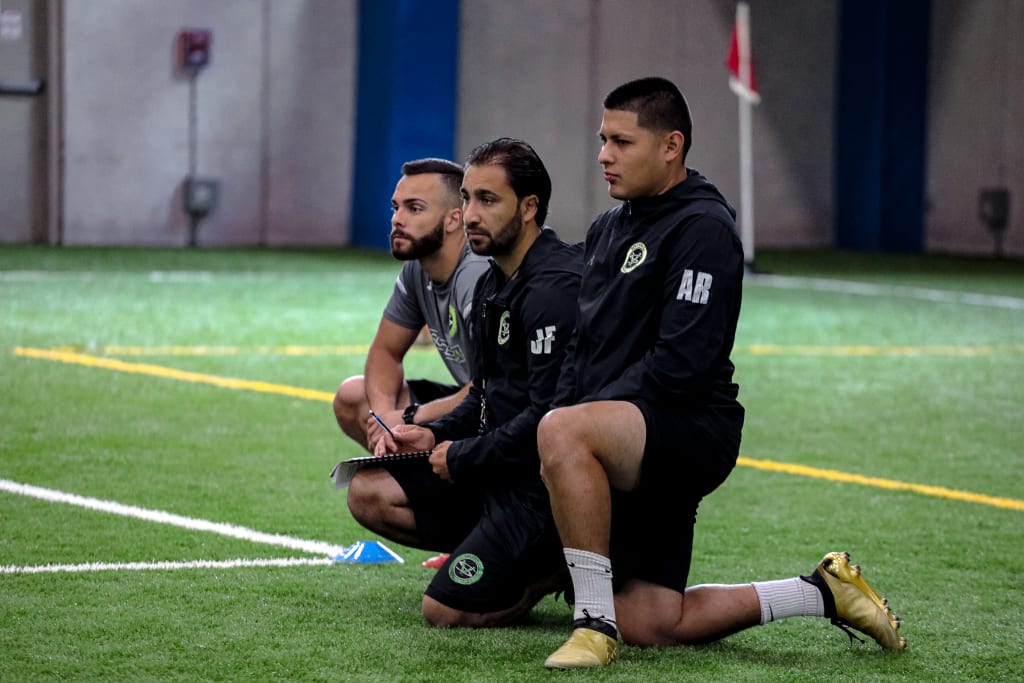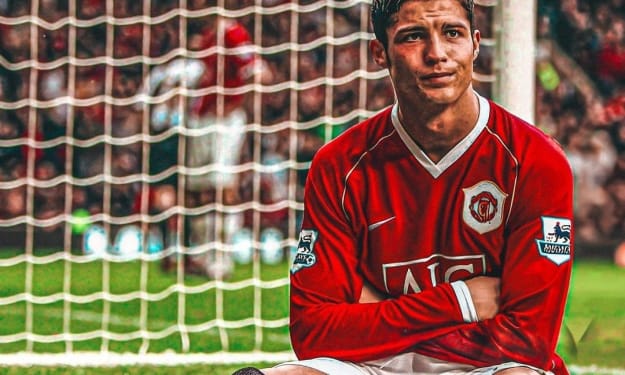America Runs on Athletes
We take a look at why the United States is so far behind in men's soccer compared to our other sports.

What makes a good soccer player? Is it a player’s ability to jump high and win every single header? Or perhaps it’s a player’s explosive speed into the open space? Could it be a player’s ability to bulldoze his or her way up and down the field using their strength?
In the United States of America, thousands of players each year have an opportunity to display their talents in the presence of a coach. In two of America’s favorite sports, football and basketball, players are often overlooked if they don’t showcase their athleticism.
America’s problem? Soccer is approached with the same mindset.
Football is a physical sport. There’s contact on defense, there’s contact on offense. To be successful in football, athleticism is needed. For example, in the NFL combine, although players are evaluated on how they perform in their respective positions, they’re also assessed on how strong, fast, and big they are. Popular exercises include: 40-yard dash, bench press, vertical jump, etc.
In basketball, your chances of making a good first impression are slim if you’re not tall, fast, or strong. If someone is asked to describe their ideal basketball player, chances are they’d say one or more of the following attributes: tall, strong, and fast. To create success in basketball, players need to be able to jump high or be tall to get rebounds. Players also need to be fast in order to dribble past opponents, and strong so they could hold their own in the ‘post.’ NBA combine exercises include: bench press, ¾ court sprint, and vertical jump.
Athleticism is something that basketball players and football players need in order to be successful in their respective sports, but is athleticism NEEDED as much in soccer?
“I think that’s where a lot of other teams in the area go wrong,” said Juan Gonzales U12 Boys Coach. “Yes athleticism is a good thing in soccer, but in the US, it's prioritized over actually knowing how to play the game. Coaches quickly fall in love with the players that are the fastest, biggest, or strongest, and overlook players who aren’t the best athletes, but are the most technically gifted.”
Alejandro Rivera, U12 Black coach, said many professional players in Europe who are not most athletic would’ve gotten overlooked if they began their careers in the United States.
“Look at players like David Silva, Xavi Hernandez, and Andres Iniesta,” said Rivera. “Although they’re all small, not fast runners, and not ripped or muscular, they do have a high IQ for the game. Technically, they’re considered some of the best players in the history of the game.”
Rivera doesn’t think the US can produce players like Iniesta, Hernandez, and Silva because according to him, coaches in the area are looking for athletes to make their team better.
“The slow, calm, nonathletic player always gets overlooked,” said Rivera.
The MLS combine, held once a year, has similar tests to those of the NFL and NBA combines. Tests include: vertical jump, 30-yard dash, shuttle run, etc.
“When I was over in Europe the players were not athletic at all,” said Joe Funicello, CEO and Director of SoccerViza. “If someone is a really good soccer player, most of the time, he can’t even catch a ball. With football and basketball, they could both jump and grab a rebound or touchdown pass in a similar fashion."
Funicello, former professional coach at Vestri FC, said football and basketball players can jump and grab a touchdown pass or a rebound in a similar fashion. In hockey, they’re using their shoulders and inviting contact throughout the game similar to football said Funicello.
“Soccer players are so unathletic to other sports in Europe, but here in America, a soccer player is usually good at basketball and other sports," said Funicello. “It’s never just one sport and I think we focus on that too much.”
Bernardo Vasconcelos, former professional soccer player and now the General Manager for Viza Management, has been working with players around Europe and Asia for years. The competition mentality regarding soccer is much different in Europe than in the US according to Vasconcelos.
“I’ve noticed players in Europe are more prepared for sacrifice,” said Vasconcelos. “They are also more focused and want to win more. It’s not just a sport to them. Generally speaking, in Europe, soccer is much more than a sport. It’s politics, religion, and more competition. In the United States many players play a sport just to play a sport.”
In other American sports, you can get away with prioritizing physical attributes rather than technique, but soccer is one of the few sports that a player needs to start at a young age in order to reach a high level. Without the proper coaching, athleticism reaches its due date and players who learned proper movements and techniques will be looked for on a bigger stage.
“I think we’re so diverse here in the US that we can make an impact on soccer worldwide,” said Funicello. “I understand that we don’t have certain players like those of the successful countries in Europe, but why not change that and start producing players at a young age?”
Funicello said teams around the US need to bring in top coaches from top teams in Europe and have them work with players from 5 to 18 years old.
“Why not bring in a full staff from Barcelona to the US so they could coach everything they’re doing over there, over here?” said Funicello. “Don’t bring American coaches to coach with the European coaches. I think they should be closed off from the American way of coaching and create a European-like culture where technique and stuff that’s relevant to soccer is preached and executed in a professional manner.”
“We tried the athlete road, and it has barely gotten us anywhere,” said Funicello.






Comments
There are no comments for this story
Be the first to respond and start the conversation.